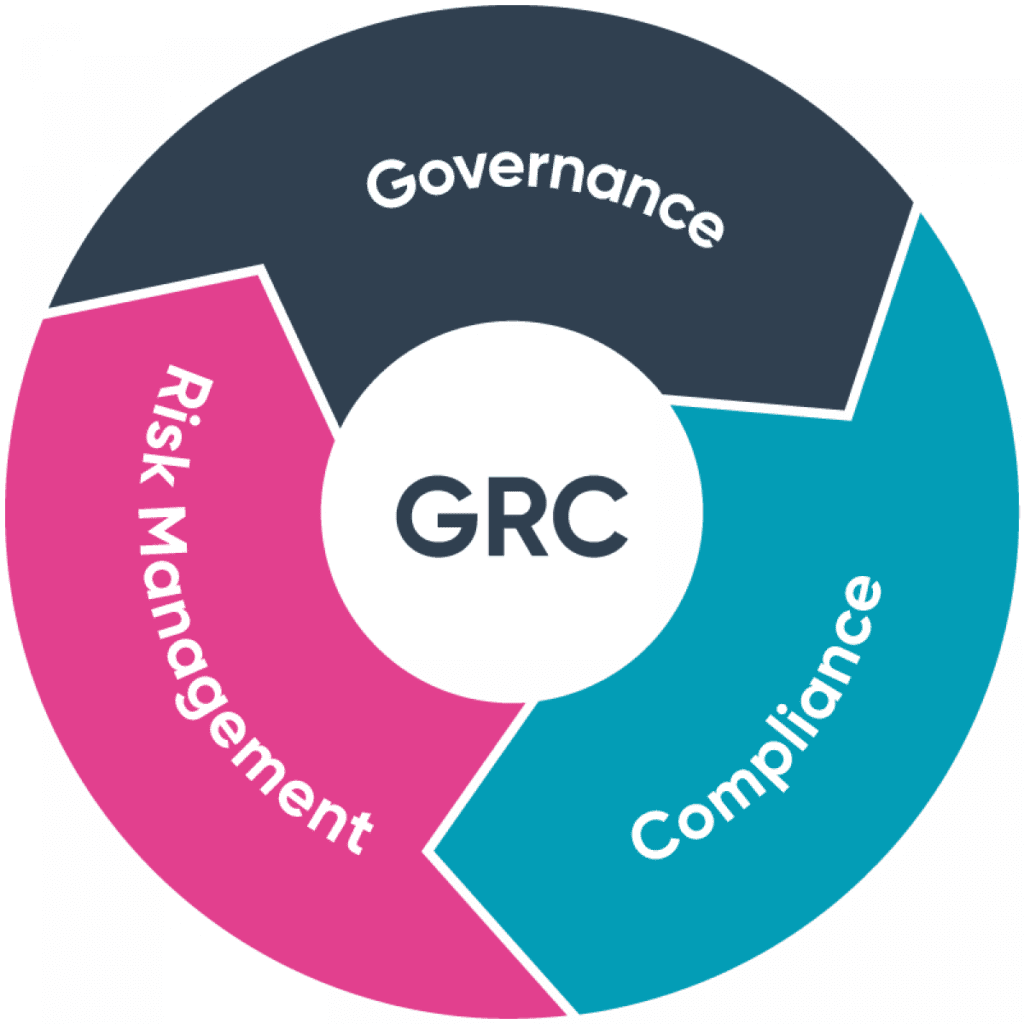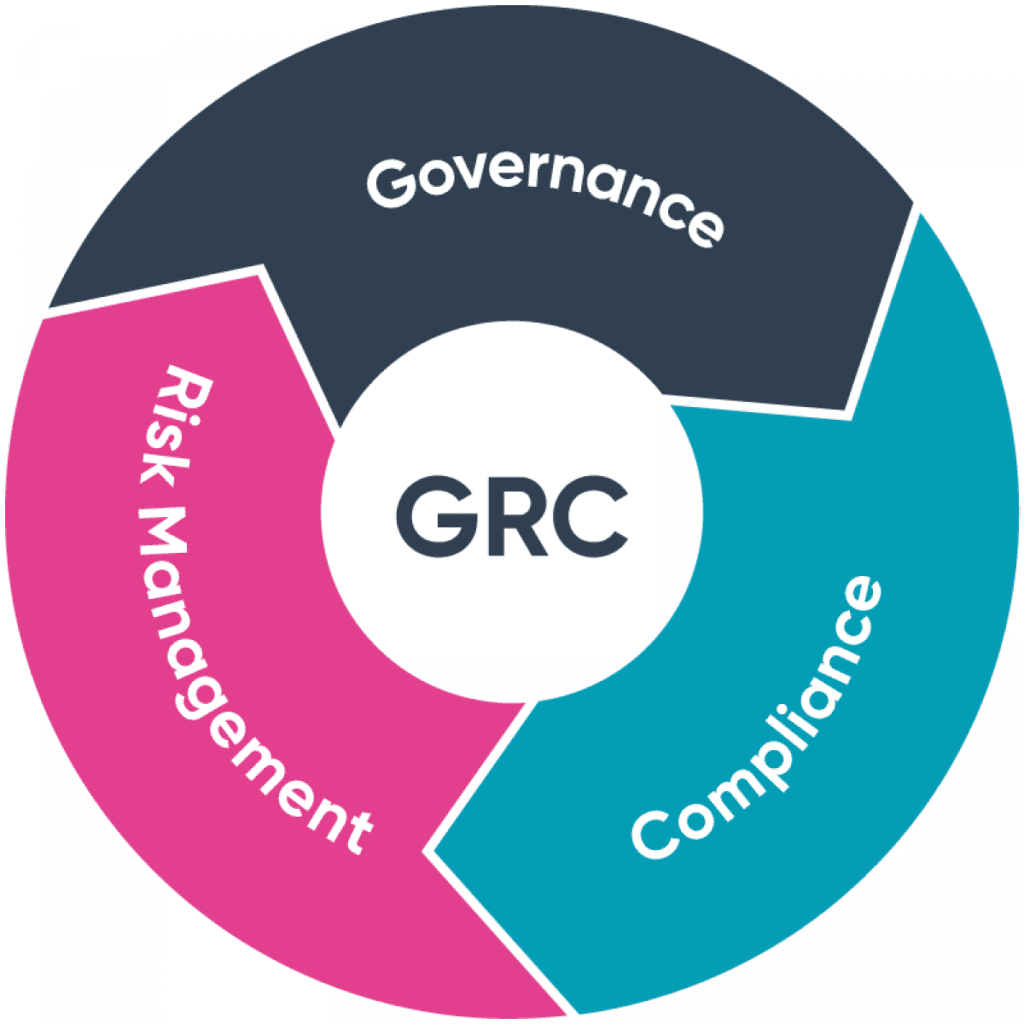
Embarking on a Governance, Risk, and Compliance (GRC) Analyst career can be a rewarding and fulfilling journey.
As a GRC analyst, you’ll play a vital role in helping organizations navigate the complexities of regulatory compliance, risk management, and corporate governance. Your job will require researching, analyzing data, and presenting findings for various industries’ effective strategies.
To start, you’ll want to develop a strong foundation of knowledge and skills relevant to the field of GRC. This includes understanding the principles of governance, risk management, compliance, security, and auditing processes.
You might consider earning a GRC certification, such as the GRC Professional (GRCP) certification, which demonstrates a comprehensive understanding of GRC concepts and practices.
Additionally, staying current with industry trends and advancements is important to continue developing your expertise. As a GRC analyst, you’ll need to be adaptable and ready to work across various industries with different types of data and risk factors.
Understanding GRC Analyst Role
Governance, Risk, and Compliance Overview
Governance, Risk, and Compliance (GRC) are crucial to managing an organization. As a GRC analyst, you will be responsible for ensuring that these aspects are effectively addressed to minimize potential risks and maintain compliance with industry standards, laws, and regulations.
- Governance:
This aspect involves the development and execution of policies, procedures, and controls that oversee an organization’s operations. - Risk:
You will be responsible for identifying, assessing, and mitigating potential risks that could negatively impact an organization’s operations or reputation. - Compliance:
Ensuring that your organization adheres to internal policies, industry standards, laws, and regulations is a key responsibility to maintain its legal and operational standing.
Key Responsibilities of a GRC Analyst
As a GRC analyst, your role will cover the following areas:
- Risk Assessment:
In most organizations, evaluating risks and their potential impacts is paramount. You must analyze vulnerabilities, threats, and hazards before proposing mitigation strategies to minimize risks. - Policy Development and Implementation:
To foster governance and compliance, you will help develop and implement policies and procedures that guide your organization’s operations. - Auditing and Monitoring:
Regular audits ensure your organization complies with internal policies, standards, and regulations. This will involve continuous checks on operational efficiency and periodic assessments to identify areas where improvements can be made. - Compliance Management:
As an expert in various laws, regulations, and industry standards, you will assist your organization in ensuring that it remains compliant by staying up-to-date with any changes in regulatory requirements or best practices that could impact its operations. - Reporting:
To keep stakeholders informed about the state of governance, risk, and compliance in your organization, you will be responsible for generating reports that detail your findings, recommendations, and any areas that require attention.
By understanding the role of a GRC analyst, you can better prepare yourself for a successful career in this field.
Focus on developing a strong foundation in governance, risk management, and compliance, and utilize the resources available to enhance your skills and knowledge.
Required Education and Skills
Bachelor’s and Master’s Degrees
To become a GRC analyst, you typically need a bachelor’s degree in a relevant field, such as computer science, business administration, or IT. Some employers may prefer or require a master’s degree, depending on the level of expertise needed for the position.
During your education, focus on gaining an understanding of GRC policies and procedures, as well as the fundamentals of business and technology.
In addition to your formal education, you may consider pursuing a GRC Professional Certification (GRCP™) to demonstrate your understanding and skills in applying GRC in your organization. This certification can help further your career and increase your marketability in the field.
Skills for a Successful GRC Analyst
As a GRC analyst, you should have a variety of skills to be successful in your role. Here are some essential skills you’ll need:
- Strong analytical and problem-solving skills:
You’ll often need to analyze data and trends and develop and implement GRC strategies. Sharp analytical skills will help you address complex issues and find effective solutions. - Communication and interpersonal skills:
You must clearly communicate your findings and recommendations to colleagues and stakeholders. Good interpersonal skills will help you build relationships and work effectively within your organization. - Knowledge of GRC policies and procedures:
Understanding the principles and processes of governance, risk management, and compliance is key to your role as a GRC analyst. Stay current with industry best practices and regulations to ensure your organization remains compliant. - Computer and technical skills:
GRC analysts often work with various software tools and systems, such as GRC platforms, data analysis tools, and spreadsheets. Familiarity with these technologies is crucial for your success in this role. - Background in business, IT, or statistics:
A solid foundation in business, information technology, or statistical analysis can provide you with the context needed to excel as a GRC analyst. This background will help you understand the broader implications of your work and develop strategies that align with your organization’s goals.
By pursuing the appropriate education and developing these critical skills, you can set yourself up for success in a fulfilling career as a GRC analyst.
Professional Certifications
Certified Professional Options
As a GRC analyst, earning professional certifications can help showcase your commitment to quality and demonstrate your expertise in governance, risk, and compliance. One popular option is the GRC Professional (GRCP™) Certification provided by OCEG.
This certification focuses on integrating governance, strategy, performance, risk, compliance, ethics, security, privacy, and audit to achieve Principled Performance in your organization.
Another well-regarded certification is the Certified in Governance, Risk, and Compliance (CGRC) offered by (ISC)². This certification emphasizes professional development, events, and peer-to-peer networking opportunities in the field of GRC.
Taking the Certification Exam

To obtain a GRC certification, you will need to:
- Register for your chosen certification exam.
- Complete any required prerequisite courses or training.
- Study for the exam using provided materials and/or online resources
- Take and pass the examination.
Most certification programs will provide clear guidance on preparation materials, exam formats, and scheduling.
Keep in mind that maintaining your certification may require Continuing Professional Education (CPE) credits, which can often be earned through industry conferences, webinars, or other learning opportunities.
Earning professional certifications in the GRC field can significantly enhance your career prospects and demonstrate your commitment to maintaining a high level of expertise. As you pursue certification, ensure that you remain dedicated to staying updated on industry trends and best practices to improve your skills continually.
Gaining Industry Experience
Role-Specific Work Experience
To become a successful GRC Analyst, gaining experience in related roles within the industry is essential. Start by seeking opportunities with responsibilities in risk management, compliance, or audit roles.
Internships or entry-level positions in these areas can provide valuable hands-on experience and help you build a foundation of skills and knowledge necessary for a career in GRC.
By working in related roles, you can develop a strong understanding of how to analyze data, create reports, and extract insights relevant to governing risk and compliance across different industries. As you progress, get involved in conducting risk assessments and mastering various tools used by GRC Analysts.
Job Openings and Career Transitions

Keep an eye on job openings and industry trends. Many organizations will require candidates with GRC Analyst experience, making it a valuable asset in your career advancement.
Be proactive in searching for GRC Analyst job openings and consider transitioning to a career in this field once you have accumulated enough experience in related roles.
Ensure your resume is tailored to highlight the relevant skills and achievements you have acquired while working in risk management, compliance, or audit positions.
Additionally, consider obtaining a GRC certification to strengthen your qualifications and demonstrate your commitment to the specialized discipline.
Navigating GRC Standards
GRC Standards and Frameworks
When seeking to become a GRC analyst, it’s important to familiarize yourself with the various GRC standards and frameworks. One such framework is the GRC Capability Model offered by OCEG. This model provides:
- Unified vocabulary across disciplines
- Defined common components and elements
- Defined common information requirements
- Standardized practices for things like policies and training
- Identified communication for everyone involved, including strategic decision-makers

By understanding these frameworks, you can ensure that your organization’s governance, risk, and compliance processes align with industry best practices. This, in turn, will improve your overall efficacy as a GRC analyst.
In addition to the GRC Capability Model, there are other crucial standards to be aware of, such as ISO 31000 (Risk Management) and the COSO Framework (Internal Control). These guidelines help you evaluate and improve your organization’s risk management, internal control, and anti-fraud procedures.
Here is a list of common GRC standards you should be familiar with:
- GRC Capability Model (OCEG)
- ISO 31000 (Risk Management)
- COSO Framework (Internal Control)
- ITIL (Information Technology Infrastructure Library)
- NIST Cybersecurity Framework
Becoming proficient in these standards and frameworks will allow you to assess your organization’s current state better and identify areas for improvement.
Implementing and adhering to these guidelines will not only ensure compliance but also contribute to the ethical management of your organization.
As a GRC analyst, remember to stay updated on changes to these standards and frameworks as they evolve in response to emerging risks and regulatory requirements.
Additionally, continue to build your knowledge of industry-specific regulations that apply to your organization, as these will also impact your work in governance, risk, and compliance.
Career Prospects and Salary
Average Pay and Benefits
As a Governance, Risk, and Compliance (GRC) Analyst, you can expect a competitive salary and benefits. The average salary for GRC Analysts in the United States is around $75,910 per year.
Your actual pay may vary depending on factors like location, company size, and experience level. In some cases, the highest-paid analysts can earn salaries in excess of $132,880.
To further enhance your career and income prospects, consider obtaining relevant GRC certifications. These certifications demonstrate your expertise in the field and may increase your chances of securing higher-paying roles and promotions.
Job Growth and Future Opportunities
The demand for GRC Analysts is expected to grow as more companies recognize the importance of proper risk management and compliance with new regulations, like the General Data Protection Regulation (GDPR).
By developing your skills and experience in GRC, you’ll be well-equipped to take advantage of future opportunities in this growing field.

You may also explore related roles like GRC Consultant or IT GRC Analyst, which can offer higher average salaries. Furthermore, you can leverage your GRC expertise to transition into other roles, such as risk management, internal audit, or cybersecurity.
Developing your skills in finance, strategy, and performance management can also help you stand out among your peers and broaden your career prospects. Remember that networking, continuing education, and demonstrating your success as a GRC Analyst will be key to maximizing your career potential in this field.
This will bring us to the end of today’s post. Becoming a GRC analyst requires a combination of education, skills, and experiences. As far as Education goes, you can either get a relevant degree or a cybersecurity certification. Develop soft skills such as analytical thinking, attention to detail, and communication.
Consider attending conferences, participating in professional networks, and engaging in ongoing training to build your network and knowledge in the field. With dedication and hard work, you’ll be well on your way to a successful career as a GRC analyst.
I wish you all the luck, and you stay cultivated.

